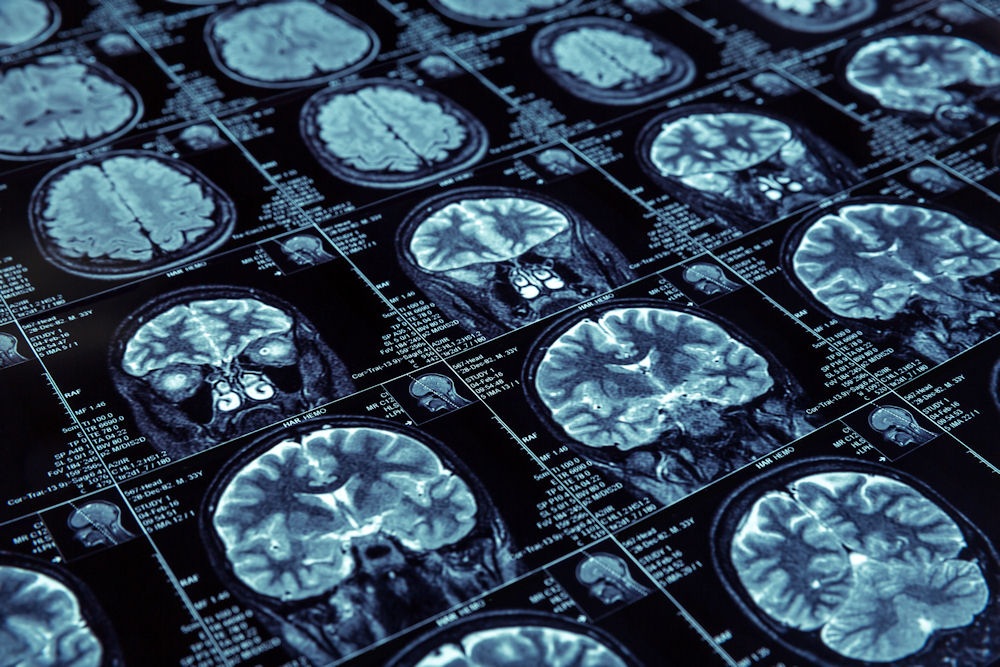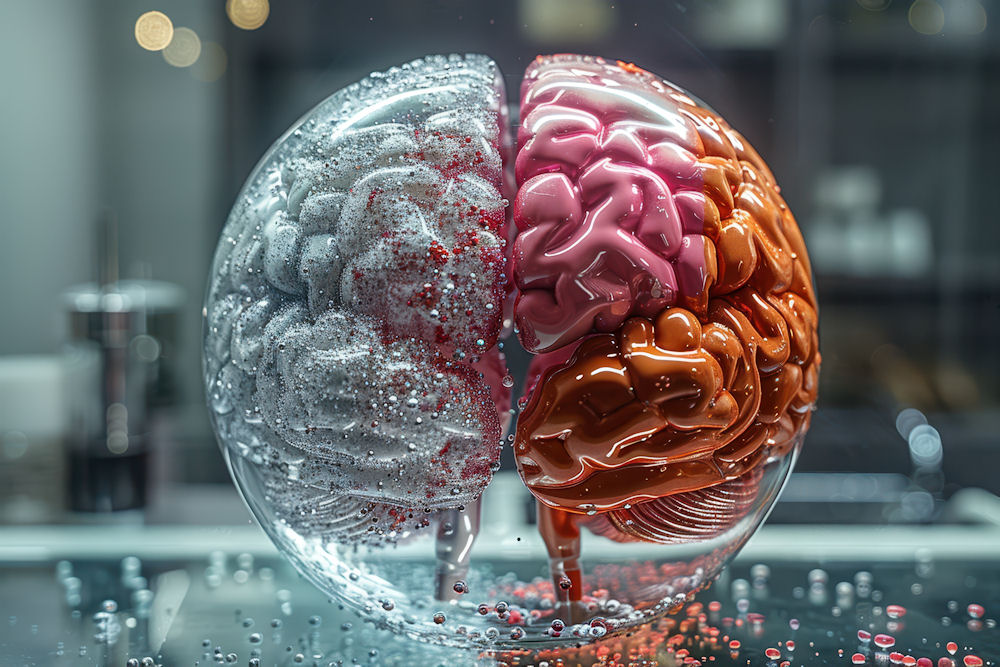Understanding the relationship between alcohol consumption and Alzheimer’s disease is increasingly important as we learn more about both conditions. This article explores the basics of Alzheimer’s disease, the role of alcohol in our bodies, and the potential connections between the two.
Alcohol addiction is a severe and potentially dangerous disease that affects millions of people every year. Take our “Am I an Alcoholic” Quiz to learn if you or a loved one has a potential alcohol use disorder. There are treatment options and programs at our beautiful Illinois facility that can help you live the life you deserve.
Alzheimer’s disease is a progressive neurological disorder that leads to the degeneration and death of brain cells. This condition manifests through a decline in cognitive abilities, affecting memory, thinking, and behavior. It is the most common cause of dementia, accounting for 60 to 80 percent of all dementia cases.
The disease is characterized by amyloid plaques and tau tangles in the brain, which disrupt communication between neurons, impairing their function and leading to cell death. Research has shown that these pathological changes can begin years, or even decades, before the onset of noticeable symptoms, emphasizing the complexity of the disease and the need for early intervention and research into preventative measures.
According to the World Health Organization, an estimated 50 million people globally have dementia, with Alzheimer’s disease being the most prevalent form. As life expectancy increases, so does the incidence of Alzheimer’s, with the greatest risk seen in individuals aged 65 and older.
This significant prevalence raises concerns about the growing number of cases, necessitating broader public health initiatives focused on education, research, and early detection. Furthermore, the economic burden of Alzheimer’s is staggering, with costs associated with care and treatment expected to rise dramatically in the coming years, placing additional strain on healthcare systems worldwide.
The progression of Alzheimer’s disease varies among individuals, but common early symptoms include memory loss, confusion, and difficulty with language. As the disease advances, individuals may experience severe cognitive decline, personality changes, and challenges with the basic activities of daily living.
Family members and caregivers often face the emotional toll of supporting a loved one through this progression, highlighting the importance of understanding and addressing this disease in society. Additionally, the psychological impact on caregivers can lead to increased stress, anxiety, and even depression, underscoring the need for support networks and resources for those who are caring for individuals with Alzheimer’s. Community programs that offer respite care, counseling, and education can play a crucial role in alleviating some of these burdens, fostering a more informed and compassionate approach to caregiving.

The Role of Alcohol in the Human Body
A comprehensive understanding of how alcohol affects the body is essential to investigating its potential link to Alzheimer’s disease.
How Alcohol is Processed
When consumed, alcohol is absorbed into the bloodstream and transported throughout the body, with the liver playing a crucial role in its metabolism. Enzymes in the liver convert alcohol into acetaldehyde, a toxic compound that, in high levels, can cause cellular damage.
The rate at which individuals process alcohol varies widely based on genetic factors, health status, and other lifestyle characteristics, which can influence their risk for alcohol-related health issues. For instance, individuals with certain genetic variations may metabolize alcohol more slowly, leading to higher acetaldehyde concentrations in their systems. This accumulation can exacerbate the risk of developing conditions such as hypertension and certain types of cancer, highlighting the importance of understanding personal metabolic responses to alcohol.
Short-term and Long-term Effects of Alcohol
Short-term effects of alcohol include impaired judgment, relaxation, and decreased inhibitions. However, excessive consumption can lead to alcohol poisoning, accidents, and risky behaviors. Over the long term, chronic alcohol use can lead to serious health problems, including liver disease, cardiovascular issues, and neurological damage.
Long-term alcohol consumption has also been linked to various mental health conditions, including depression and anxiety, which may indirectly affect the onset of dementia-related diseases like Alzheimer’s. Furthermore, studies suggest that chronic alcohol use can lead to structural changes in the brain, such as shrinkage in the hippocampus, an area critical for memory formation. This alteration in brain structure may contribute to cognitive decline, making it imperative to consider not just the quantity of alcohol consumed, but also the duration and context of its use for overall brain health.
Investigating the Link Between Alcohol and Alzheimer’s
Numerous studies have sought to uncover the relationship between alcohol consumption and the risk of developing Alzheimer’s disease.
Alcohol as a Risk Factor for Alzheimer’s
Research indicates that heavy and prolonged drinking may increase the risk of developing Alzheimer’s and other forms of dementia. Alcohol can contribute to neurodegenerative processes by increasing inflammation and oxidative stress, both of which are implicated in brain cell damage.
Conversely, some studies suggest that moderate alcohol consumption, particularly red wine, may have protective effects due to compounds like resveratrol, which have anti-inflammatory properties. The nuances of these findings indicate that not all alcohol consumption is equal in its impact on brain health.
Moreover, the context of drinking habits plays a crucial role in these studies. For instance, social drinking in moderation may foster social connections and mental engagement, which are beneficial for cognitive health. In contrast, solitary drinking or binge drinking often correlates with negative mental health outcomes, further complicating the relationship between alcohol and Alzheimer’s risk.
The Impact of Alcohol on Brain Health

Alcohol can significantly affect brain health, primarily by disrupting the balance of neurotransmitters that are crucial for communication between neurons. Chronic alcohol use may lead to structural changes in the brain, including the loss of brain volume and connectivity issues.
These changes can interfere with cognitive functions such as memory and problem-solving, serving as a potential pathway to dementia over time. Understanding these mechanisms is vital in assessing individual risk factors related to alcohol consumption.
Additionally, the age at which individuals start drinking and the duration of their drinking habits can influence their long-term cognitive outcomes. Early onset of heavy drinking is particularly concerning, as it may set the stage for more severe neurodegenerative changes. Furthermore, genetic predispositions can also play a role, with certain individuals being more susceptible to the adverse effects of alcohol on brain health, highlighting the need for personalized approaches to understanding alcohol’s impact on cognitive decline.
Prevention and Risk Reduction Strategies
Given the complexities of Alzheimer’s disease and its connection to alcohol, it’s essential to implement effective prevention and risk reduction strategies.
Lifestyle Changes for Alzheimer’s Prevention
Adopting a healthy lifestyle can play a significant role in reducing the risk of Alzheimer’s disease. This includes engaging in regular physical activity, maintaining a balanced diet rich in antioxidants and omega-3 fatty acids, managing stress, and staying socially active.
Additionally, cognitive engagement through reading, puzzles, or learning new skills can help strengthen brain resilience against age-related decline. Studies have shown that activities such as playing musical instruments or participating in group discussions can enhance cognitive function and promote neuroplasticity, the brain’s ability to adapt and reorganize itself. Moreover, fostering strong social connections not only provides emotional support but also encourages mental stimulation, which is vital for maintaining cognitive health as we age.
The Role of Alcohol Moderation in Alzheimer’s Prevention
Moderation in alcohol consumption is key for those who choose to drink. Limiting intake can help mitigate the risks associated with heavy drinking while allowing the potential benefits of moderate alcohol consumption. It is often recommended that women limit their alcohol intake to one drink per day and men to two drinks per day to stay within safe consumption limits.
Furthermore, understanding the type of alcohol consumed can also be important. For instance, red wine is often highlighted for its potential health benefits due to its high levels of resveratrol, a compound thought to have neuroprotective properties. However, it’s crucial to remember that these benefits can easily be outweighed by the adverse effects of excessive drinking.
Getting Help for Alcohol Addiction
 Along with its connection to Alzheimer’s, excessive alcohol use and addiction can have severe mental and physical effects. Millions of people every year struggle with alcoholism and don’t get the help they need. Northern Illinois Recovery Center provides several different treatment options with care and expertise. Some of our programs include:
Along with its connection to Alzheimer’s, excessive alcohol use and addiction can have severe mental and physical effects. Millions of people every year struggle with alcoholism and don’t get the help they need. Northern Illinois Recovery Center provides several different treatment options with care and expertise. Some of our programs include:
- Outpatient Program
- Residential treatment
- Sober living programs
- Partial Hospitalization Program (PHP)
- Detox Program
If you or a loved one is struggling with alcohol addiction, it may be time to get professional help. Our team will help you during your recovery process. Don’t wait for things to get worse, give us a call today to get started.




